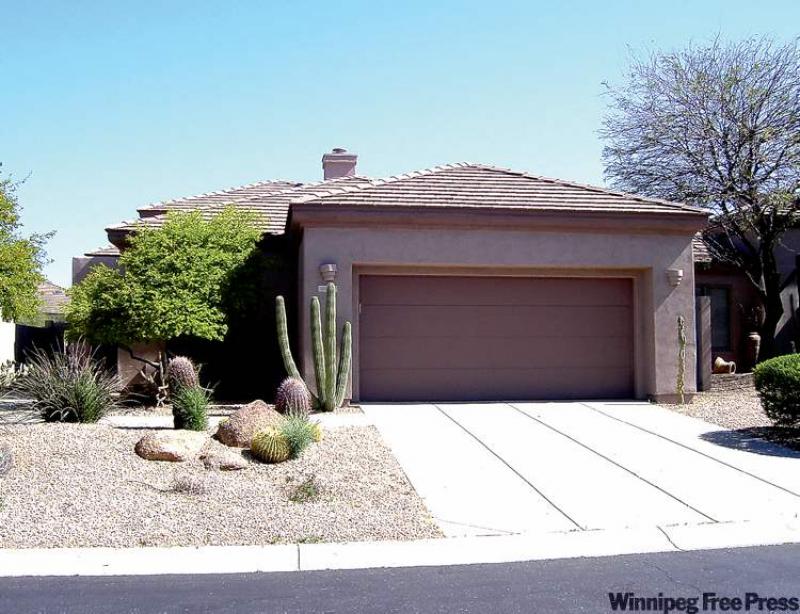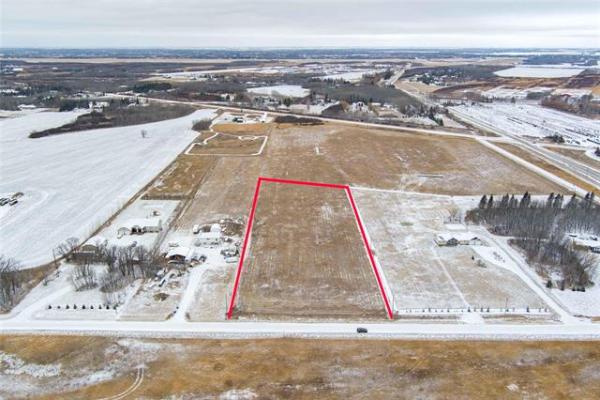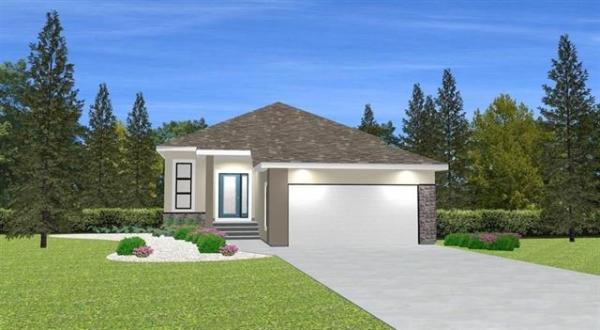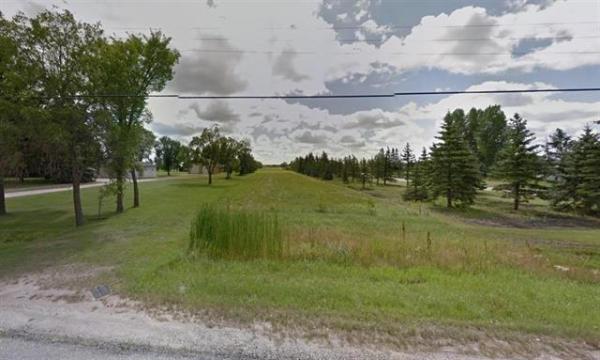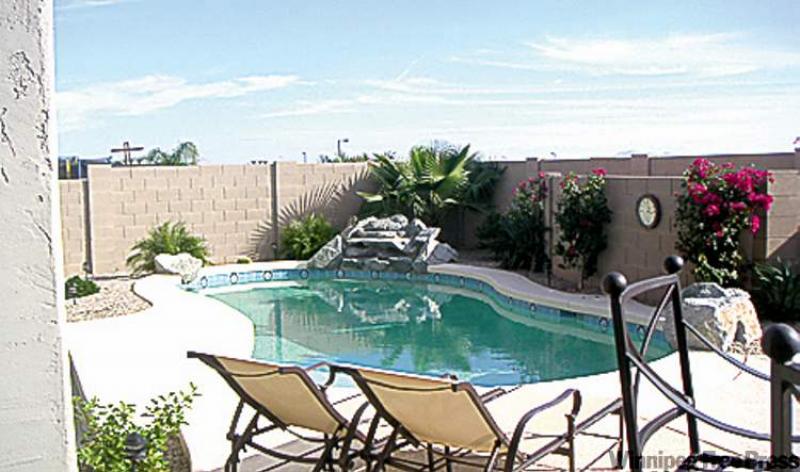
PHOENIX, Ariz. -- Owning a second home in the sun-drenched desert can give you paradise on Earth or your worst headache.
Take the couple who closed their new Phoenix home for the summer without making arrangements to have their property checked. They returned in November to discover damage from a water leak. They had to replace the lower kitchen and bathroom cabinets and baseboards, drywall and mildewy carpets.
"If someone had been checking on their home, they would have noticed the water leak and taken care of it," says Jill Yancy, owner of While You Are Out, a home-watch service in the West Valley of Phoenix.
Homeowners who buy property in Greater Phoenix are advised by real estate agents and builders alike to hire someone to check their house regularly if they are not going to live there full time.
"The absolute No. 1 reason to have someone look after your house is water damage," says Bill Swaim, customer service representative for Shea Homes at Trilogy, an active-lifestyle community in Peoria, Ariz. "Water can have the most devastating effect on a home."
Edmonton native Ronna Bremer, who bought a house west of Phoenix last summer, says her realtor found her a house-watch service and gave her and her partner a list prepared by the builder outlining what they needed to do when closing their seasonal home for more than three weeks.
"Owning property in the south is completely different for us," explains Bremer. "My partner lived in the Arctic for 35 years and I spent 10 years in the N.W.T. Up there you worried about pipes freezing; you didn't worry about the heat and the bugs.
Swaim says it's the adverse changes in climate that can be so hard on the home.
In a 24-hour period, we can have 50-degree swings in temperature -- from a low of 50 F (10 C) to a daytime high of 105 F (41 C)." He says the expansion and contraction caused by changes in temperature can cause drywall and wood to crack. Even plastics and cloth can be affected by the desert dryness.
"For those who live here part-time, I am their eyes and ears," says Yancy, whose client list includes both seasonal and winter snowbirds from Canada, the U.S. and Europe. "When you are away, you don't know what is going on at your home. We walk through and around your house every week, or other week, and can spot something that could become a major problem."
She recalls one client who hired her before he closed for the season. He had just installed a waterfall in the backyard. "I came to check his house three days after he left and found the whole backyard flooded."
Home-watch services offer a variety of weekly or bi-monthly packages, (bi-monthly rates average $60 US.) Most services commonly include exterior and interior inspection for damage, vandalism or pests; running faucets, dishwashers and washing machines; flushing toilets; checking thermostats and A/C filters; starting the vehicle; adding salt to water softeners and checking mail.
George Roberts, a realtor with Can-ix Realty, a Canadian-owned real estate company in Arizona, says seasonal homeowners should get to know their neighbours, who can also keep an eye on your place while you are away.
"If you've bought into an active adult community, the social life makes it easier to meet your neighbours," he adds.
-- Postmedia News
Before you leave:
Put a five-gallon pail filled three-quarters with water in each room of the house and one in the garage if you have a car.
Turn off your upper water shut-off valve to the house. Leave the bottom valve on if your home has a fire sprinkler and/or irrigation system.
Keep the thermostat set to no more than 85 F in the summer and not higher than 65 F in the winter.
Cover windows to keep the heat out and reduce damage to furniture, floors and carpets.
Leave one ceiling fan on low in the summer while away to circulate air and keep the home a little cooler.
Set the water heater thermostat to vacation.
Don't empty your fridge; it costs more to cool an empty fridge. Put bottled water in the fridge and freezer and boxes of cereal and bags of flour in containers in the fridge. Turn off the ice maker.
Pour a quarter-cup of vegetable oil down the garbage disposal after running cool water down the drain to keep blades from sticking.
Toss some leftover ice cubes into the garbage disposal and grind them to keep the blades sharp.
Store or cover outdoor furniture, barbecues and heat lamps.
Store golf clubs or bicycles in the cooler house if possible.
Ask your house-sitter to:
Run water through all the drains and run the dishwasher and washing machine on the rinse cycle and check for water leaks.
Change the air filter every two months in the summer to help your A/C run better.
Close but do not latch the dishwasher door and place sink stoppers in the sink drains to eliminate the sewer gas from coming in through the drains.
Start the car once a month and drive it around the block in the summer. The tires can form flat spots sitting on the same hot concrete spot for months. Opening the garage door will let out some of the sweltering heat.
Close toilet bowl lids after flushing to reduce water evaporation.
Bring in the mail and remove any flyers from around the front door.
Check inside for unwanted pests.
Add salt to water softeners if needed.
Ensure all doors, windows and sliders are locked and secure.
Check the perimeter for weather damage.

